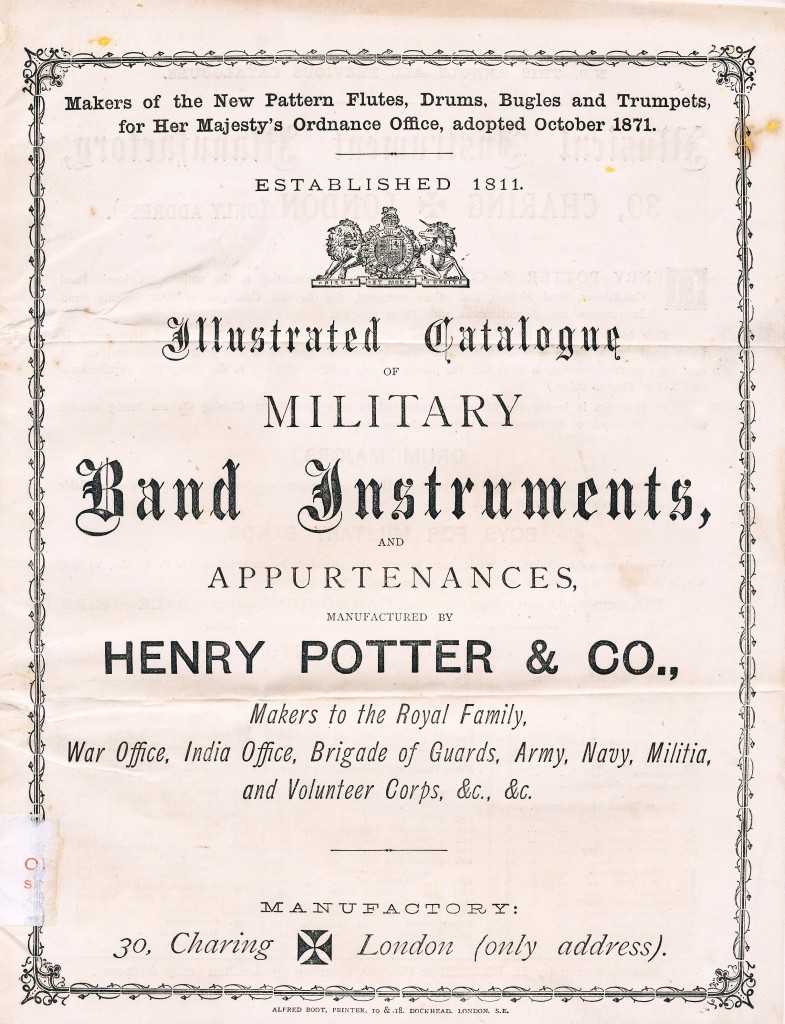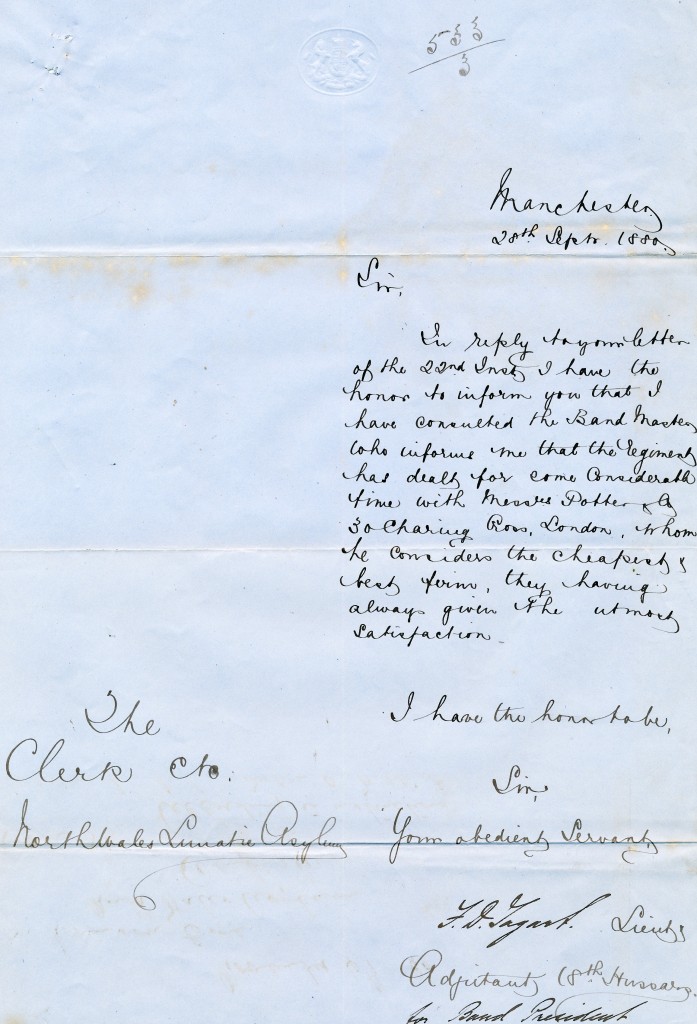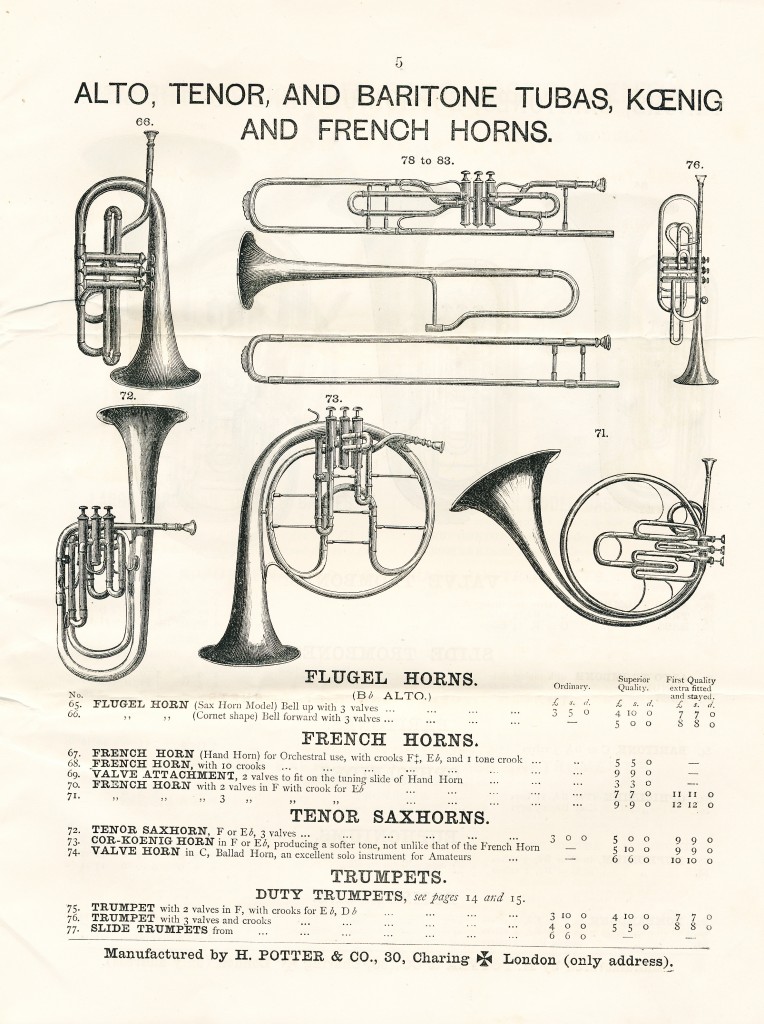Music therapy had been much discussed by doctors in the 18th Century for the treatment of a wide range of conditions, including melancholia and mania. The London physician, Dr R. Brocklesby, had written a treatise on music therapy in 1749 (Reflections on the Power of Music) in which he discussed musical remedies for the diseases of the mind.
At the North Wales Asylum in Denbigh, Dr George Turner Jones had overseen the setting up of a band in the early days of the asylum and by the 1870s it was going strong. Patients were encouraged to become involved and Dr Turner Jones may well have drawn on the work of earlier physicians who had recognized the remedial powers of music.
One patient seen to benefit from such an intervention was JGH, a Colour Sergeant with a regiment stationed at Canterbury. JGH was admitted to Denbigh Asylum in 1901 after an attempt to cut his own throat with a tobacco tin lid. It was believed that his melancholia was triggered by anxiety about a pending musketry examination.
His father had been a militia bandmaster stationed at barracks in Caernarfon in 1878 and JGH’s case notes suggest he had inherited his father’s musical ability. During his time in Denbigh he was described by staff as dull and stupid, noisy and threatening. However, in 1926 – some 25 years following his first admission and just a year before his death from pneumonia – despite being quite demented “speaking to no-one and taking interest in nothing”, he was still playing clarionette in the Asylum band.
JGH’s insanity was also thought to be inherited. His mother (SH) was admitted to the asylum three times between 1874 and 1878 and she was still resident there when JGH was brought to Denbigh by his regimental sergeant. The records give no hints that SH was reunited with her son before she died in 1918.
New Instruments

In 1880 Mr John Robinson wrote to the Band Master of the 18th Hussars, stationed in Manchester, seeking guidance about the purchase of some new instruments for the asylum band. Messrs Potter and Co. of Charing Cross London, who had been appointed suppliers of instruments to Her Majesty’s Ordnance Office in 1871, were recommended “they having always given the utmost satisfaction”.


